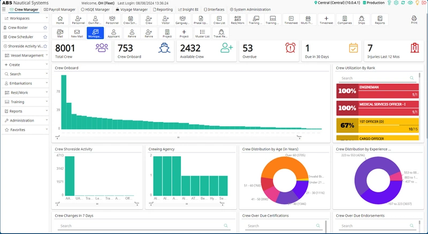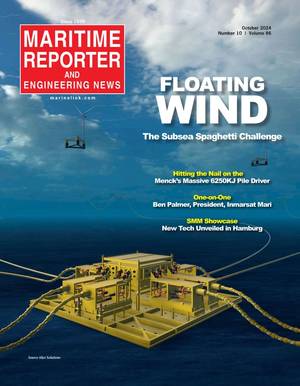The U.S. Coast Guard (USCG) has placed the International Register of Shipping (IRS) in the top bracket of those recognized organizations (RO) that consistently achieve zero detentions for its registered vessels for the third time in just six years.
IRS notes its strong performance reported by the USCG in its Annual Report 2014 follows the completion of performance audits by the Tokyo Memorandum of Understanding and the Panama government. IRS passed the Panama audit without any major non-conformances or the need for a follow-up audit, placing the classification society amongst leading industry ROs, including the American Bureau of Shipping, Lloyd’s Register and DNV GL.
The USCG conducted its lowest number of safety exams in 2014 but reported that the number of detentions for environmental protection and safety related deficiencies had slowly increased in the past four years. The largest number of ship detentions comprised bulk carriers followed by containerships with ISM related issues heading the list of safety deficiency types closely followed by MARPOL and fire-fighting appliances.
IRS Member of Board of Directors Panos Kirnidis said, “The United States Coastguard is one of the world’s most active and stringent maritime authorities and for IRS to achieve zero detentions in its latest annual report is a real testament to our dedication and professional operations. Over the past few years we have made significant investments in systems and processes to improve the service we offer to ships in the IRS fleet. We understand the importance of performance and safety and this is borne out by this latest USCG report.”
In the report, Rear Admiral Paul F. Thomas of the USCG said, “We found a major factor for the detention increase is the intentional deviation from compliance from MARPOL Annex 1 requirements. As we move forward, I will continue to look for owners, operators, crews, flags, and class societies to make it a goal to eradicate such unsafe practices. I appreciate those vessel owners and operators who remain committed to fostering a culture of safety and security on their vessels, and I look forward to continued improvement in the future.”
Kirnidis stated that IRS management supports the drive to ensure registered vessels and class societies work in harmony on these issues. “Our objective has always been to work closely with our owners and other stakeholders, especially port state and flag state authorities. We actively participate in all MOU meetings, and recently attended the Caribbean Memorandum of Understanding on Port State Control’s 20th Committee meeting in June, where we presented a paper to the committee on the impact of amendments to the RO Code, which entered into force in January 2015.”
“We do not just sit back and rest on the laurels of complacency; we strive to eradicate substandard shipping and to ensure IRS will be zero rated with all MOUs,” he said.













